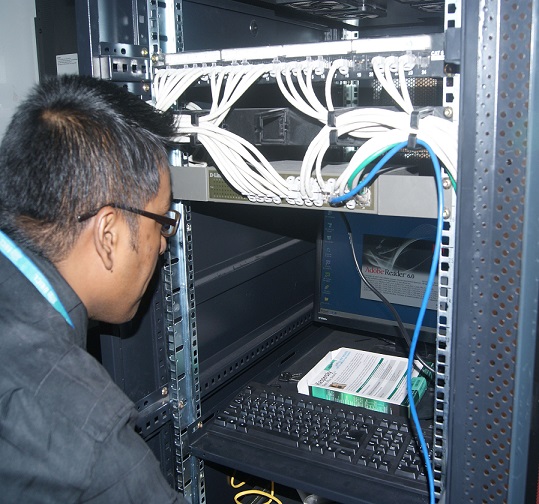
In today's interconnected world, computer networks form the backbone of modern communication and information sharing. Whether it's a small business or a large enterprise, having a robust and secure network infrastructure is crucial.
In today's interconnected world, computer networks form the backbone of modern communication and information sharing. Whether it's a small business or a large enterprise, having a robust and secure network infrastructure is crucial. If you aspire to become a networking professional or enhance your existing networking skills, you're in the right place. In this blog post, we will explore a comprehensive networking professional course designed to provide you with the knowledge and skills necessary to excel in the field of networking.
This course begins with an introduction to networking fundamentals, covering concepts such as the OSI (Open Systems Interconnection) model, TCP/IP protocol suite, network topologies, and network devices. You will gain a solid understanding of how data flows across networks and the foundational principles that govern network communication.
Building a well-designed network infrastructure is crucial for optimal performance and scalability. This course delves into network design principles, including network segmentation, subnetting, addressing schemes, and VLANs (Virtual Local Area Networks). You will learn how to design and implement efficient network architectures that meet the specific requirements of organizations.
Routing and switching are the backbone of network connectivity. In this course, you will explore routing protocols, such as OSPF (Open Shortest Path First) and BGP (Border Gateway Protocol), as well as switching technologies, including VLANs, STP (Spanning Tree Protocol), and EtherChannel. You will learn how to configure routers and switches, optimize routing tables, and ensure efficient data forwarding.
With the ever-increasing number of cyber threats, network security has become paramount. This course covers network security principles, including access control, authentication, encryption, and intrusion detection and prevention systems (IDPS). You will also learn about firewalls and how to implement them to protect network infrastructure from unauthorized access and malicious attacks.
Wireless networks have become ubiquitous, providing flexibility and mobility. This course explores wireless networking technologies, such as Wi-Fi standards, access points, wireless security protocols (WPA2, WPA3), and wireless site surveys. You will gain the knowledge and skills to design, deploy, and secure wireless networks to meet the connectivity needs of modern organizations.
Network issues are inevitable, and troubleshooting skills are crucial for maintaining network uptime. This course equips you with essential tools and techniques for network troubleshooting and performance optimization. You will learn how to identify and resolve common network problems, conduct network diagnostics, and optimize network performance for maximum efficiency.
Effective network monitoring and management are vital for maintaining a healthy and secure network infrastructure. This course introduces network monitoring tools and techniques, including SNMP (Simple Network Management Protocol), Syslog, and network performance monitoring. You will learn how to monitor network devices, analyze network traffic, and proactively manage network resources.
The field of networking is continuously evolving, with new technologies and trends shaping the industry. This course explores emerging networking technologies, such as Software-Defined Networking (SDN), Network Function Virtualization (NFV), and Internet of Things (IoT) networking. Staying updated on these emerging trends will enable you to adapt to the changing networking landscape and meet the evolving needs of organizations.
Conclusion:
Becoming a skilled networking professional requires a solid understanding of networking principles, hands-on experience, and comprehensive learning resources. The networking professional course outlined in this blog post covers all the essential topics, from networking fundamentals to network design, security, troubleshooting, and emerging technologies. By completing this course, you will be well-equipped to design, implement, secure, and manage network infrastructures, opening doors to exciting career opportunities in the field of networking. So, seize the opportunity to build a solid foundation for your networking career and enroll in the networking professional course today!